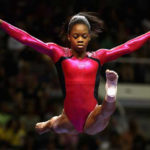 The #Metoo movement has shed renewed light on inequality in our society, but as the recent Gillette advert highlighted, the topic continues to attract critics. A recent study from Kellogg Business School explored whether our opinion on social equality had a fundamental baring on the kind of content we shared online, but also the kind of people we promoted.
The #Metoo movement has shed renewed light on inequality in our society, but as the recent Gillette advert highlighted, the topic continues to attract critics. A recent study from Kellogg Business School explored whether our opinion on social equality had a fundamental baring on the kind of content we shared online, but also the kind of people we promoted.
The research found that people who identify as politically liberal were more likely to promote the achievements of black or female athletes and scholars.
“Political liberals have a natural affinity for targets that belong to groups that they see as socially disadvantaged, and a motivation to raise these groups’ position in society,” the authors explain. “Given this, we reasoned that they would want to emphasize the good things that those who belong to groups that are otherwise overlooked are able to do.”
Olympic tweets
The researchers examined Twitter activity around the various gold medalists at the 2016 Summer Olympic Games to test whether liberals were more likely to tweet about successful black and female athletes than conservatives. They focused purely on gold medalists as the winners could only really be viewed as a success, so the tweets ‘should’ all be regarded in a positive manner.
In total, there were around half a million tweets sent by over 160,000 users, with the researchers able to accurately identify both the race and gender of each of these users, and also their political ideology.
The analysis found an understandable ingroup-outgroup effect, with women more likely to tweet about female athletes, black people more likely to tweet about black athletes, and so on, but there was nonetheless a noticeable predilection for liberals to celebrate the success of a much more diverse range of athletes than their conservative peers.
“People are more likely to celebrate the accomplishments of members of their group, but the important part for us was that over and above this group-membership effect, we reliably find a very strong political-ideology effect,” the authors explain.
Indeed, liberals were found to be twice as likely to tweet about a black athlete as conservatives were, with this particularly pronounced for black female athletes.
Understanding why
To try and understand what was happening in more detail, the researchers created an experiment in lab conditions whereby nearly 800 participants, from both conservative and liberal ideologies, read various accomplishments from women and racial minorities, and statements on how these accomplishments are often overlooked. A control group read a neutral article.
Both groups were then placed in a mock recruitment scenario whereby they had to select a faculty member to represent the university for a CNN piece. They were given three people to choose from, two of whom were white men, with the third a black woman.
The group who had been primed to consider how underrepresented groups are so often overlooked were much more likely to select the black woman than their peers in the control group, with this finding true for both conservatives and liberals, although liberals were still much more likely overall to do so.
“Both liberals and conservatives shift up when they read that disadvantaged minorities’ accomplishments tend to be overlooked, but the ideological difference that exists at baseline remains,” the researchers explain.
The issue was further explored in a third study, in which around 2,000 Twitter users, split equally between conservatives and liberals, were recruited and asked to complete a survey to ascertain their desire to raise the standing of disadvantaged groups, how important it was for them to be perceived as fair, and so on.
A week later, each volunteer was asked to watch a TED talk and asked to consider sharing it on their Twitter feed. Half of the volunteers watched a talk by a white male astrophysicist, whilst the other half watched a talk from a black female astrophysicist. In addition to being tested for the frequency of shares of each video, the volunteers were asked to rate the content of the video in terms of quality and whether the speaker had had to overcome barriers to achieve their success.
As before, conservatives tended to tweet about both astrophysicists equally, whereas liberals tweeted more about the black woman than the white man. Indeed, the researchers believe this is largely due to the liberal belief that disadvantaged groups need help to raise their standing, suggesting social equality is top of the mind of liberals more than it is conservatives.
“We know from a large body of work that political liberals tend on average to be more concerned with creating social equality between groups, and that’s data that goes way back,” the authors conclude. “I think that what this moment in time has brought up is a real salience and a social conversation around these issues that might make them sort of more top of mind.”